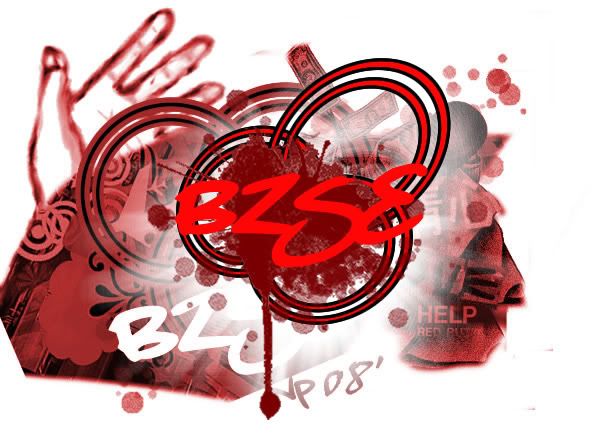Friday, May 21, 2010
Glory's post
RapidSMS Child Malnutrition SurveillanceAn interesting example of a current collaborative approach would be The Integrated Nutrition and Food Security Surveillance (INFSS) system in Malawi. This was established with technical assistance from Action Against Hunger (ACF) and the support of the Malawi government, UNICEF, and respective partners.
As the massive spread of malnutrition affected Malawi, something had to be done alleviate this serious and fatal problem. With the system of SMS involved, even the MDG goal of ensuring environmental sustainability comes into place because the information would be stored in an e-database, hence minimizing the capacity of paper required. The staff in the field would now know about their patient’s status in real time.
This system also improved the mutual accountability on a local level. With a platform for information to be exchanged, trust and understanding can develop. The stakeholders involved would be the Malawi government, the local Civil Society Organization Ushahidi, full/part time staff involved in monitoring the data collection and nutrition program, volunteers, donors, and most substantially, their people.
Challenges
A major challenge would be the high frequency of improper measurement and collection techniques. As monitors are dispatched onto the field, it would not be feasible to observe their process of data gathering.
There could be a possibility of a skewed data as well. Although this system includes children within Malawi, those in further rural areas may not have access to the program. This could lead to misrepresentation of the country’s nutritional status.
Literacy was important as data collection would require knowledge of basic statistical functions or numerals. Data entry mistake were made by monitors on the field, and this could cause very inaccurate and false results.
Technological literacy could also be a challenge as the extraction of data would require an office application such as Excel sheets. With the large present challenge of massive data pouring in, the goal of real time reports on the nutritional status could be compromised.
Mutual ownership could also pose as a challenge to this program. As different partners are involved, the responsibility of following up might be unclear and difficult to account for if not planned orderly.
Organizations involved
UNICEF Malawi: UNICEF plays the role of facilitation between the collaborating organizations. As such, UNICEF involves itself in bringing partners together for this program. By providing open source policy, they encourage transparency and harmonization of the partnerships. UNICEF inculcates productive management for results. They maintain impartiality by balancing national objectives, and the people’s welfare. This would then aid the most appropriate decision making process.
Malawi Government: The government has the role of securing and providing the central database monitoring the status of its country. Being responsible for a macro overview, the government aids in the management of policies for effective collection of data, as well as the implementation of nutrition programs.
For example, they are able remove the previous manual version of data collection, and channel warning systems that require a nation-wide notice. Their involvement with Rapid SMS through UNICEF promotes shared analysis and the usage of common arrangement/procedures
CSO (Civil Society Organization) Ushahidi aka “Testimony” in Swahili: Ushahidi’s role involves providing a platform of data gathering and collection. This allows the needs of the locals to be assessed, and reinforces UNICEF’s open source policy to bring awareness about the current conditions in Malawi. They help encourage fellow organizations within the continent to establish monitoring systems as well. Ushahidi fosters ownership between partners. For example, they are able to build the trust of their people and instill belonging with what the government is trying to do.
Columbia University, Rapid SMS/Frontline SMS
The students involved would work with the Malawian government and UNICEF to implement the open source system for Rapid SMS. These persons with expertise reinforce the MDGs of global partnerships. As the world is not able to go back in time for development, it could empower developing countries to advance forward. With their involvement, it helps this program in achieving the MDG goals eradicating extreme poverty and hunger and reducing child mortality.
I believe this system has proved to be effective and sustainable. With the efficient use of technology, the lag of paper work and high labor costs/manpower is addressed. It is a great approach because access to technology is enabled. As the phenomenon of globalization and development advances the world, the entrance of technology for these people entails access to markets, aid, and education. While the SMS technology is being utilized, it becomes a practical motivation to become literate. Hence, the MDG goal of gender equality could is involved because SMS could be used by anyone with the appropriate device, regardless of gender. This could lead to a rippling effect that proves to create incentives socially and economically. For example, as the people are able to use SMS, it could save them the high costs of calling.
What has worked well would be improved communications and effective aid to reach the children with malnutrition. It has also lowered operational costs, while enabling real time information of the current status of its people. Most importantly, it opens a channel of proper feedback that breeds a sense of ownership, trust and loyalty between the Malawians and their government.
What could be worked on would be the professionalism and accuracy of monitoring. As the data collected would affect the results directly, perhaps monitors who go into the field would have to pass appropriate training and trial tests. The process of collection could also be kept simple to reduce mistakes and errors.
We Loved12:57 PM





 April 2008 past
April 2008 past